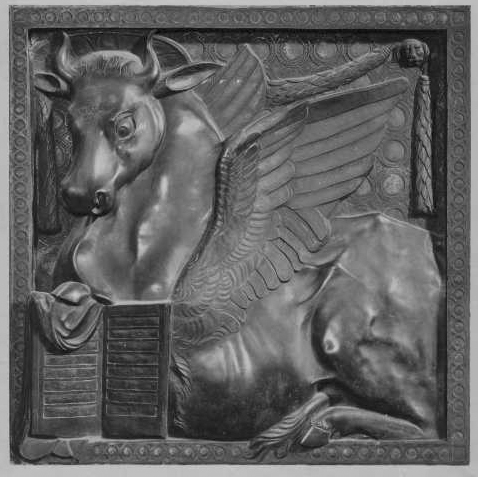rupol2000
Gold Member
- Aug 22, 2021
- 18,215
- 2,628
- 138
- Banned
- #1
Personally, I have no doubts about this word. It has two roots: dev-vil
The Devas are the heavenly gods of the Aryans, the bearers of the right good beginning Rta in the Universe.
Vil is the Greek version of the word Vaal, which in turn comes from the Babylonian Bel, hence the very word Babylon - the gate of God (Bull) and "Biblia" from here
The supreme god of the Devas is Dyaus Pitar, the Heavenly Father. Hence, the Devil's Horns. His epithet is luminiferous Lucifer.
In early Christian icons of the Romanesq period, the Heavenly Father was still depicted as a bull. This forgery apparently arose during the period of the Gothic and the Inquisition, after the Plague.
Another epithet is the Celtic Saman(hense Satan).
It was this that the witch hunt was connected with - they worshiped the heavenly father.
It is also likely that the extermination of the Aurochs(Turs) was associated with these "reforms"

 en.wikipedia.org
en.wikipedia.org
The Devas are the heavenly gods of the Aryans, the bearers of the right good beginning Rta in the Universe.
Vil is the Greek version of the word Vaal, which in turn comes from the Babylonian Bel, hence the very word Babylon - the gate of God (Bull) and "Biblia" from here
The supreme god of the Devas is Dyaus Pitar, the Heavenly Father. Hence, the Devil's Horns. His epithet is luminiferous Lucifer.
In early Christian icons of the Romanesq period, the Heavenly Father was still depicted as a bull. This forgery apparently arose during the period of the Gothic and the Inquisition, after the Plague.
Another epithet is the Celtic Saman(hense Satan).
It was this that the witch hunt was connected with - they worshiped the heavenly father.
It is also likely that the extermination of the Aurochs(Turs) was associated with these "reforms"

